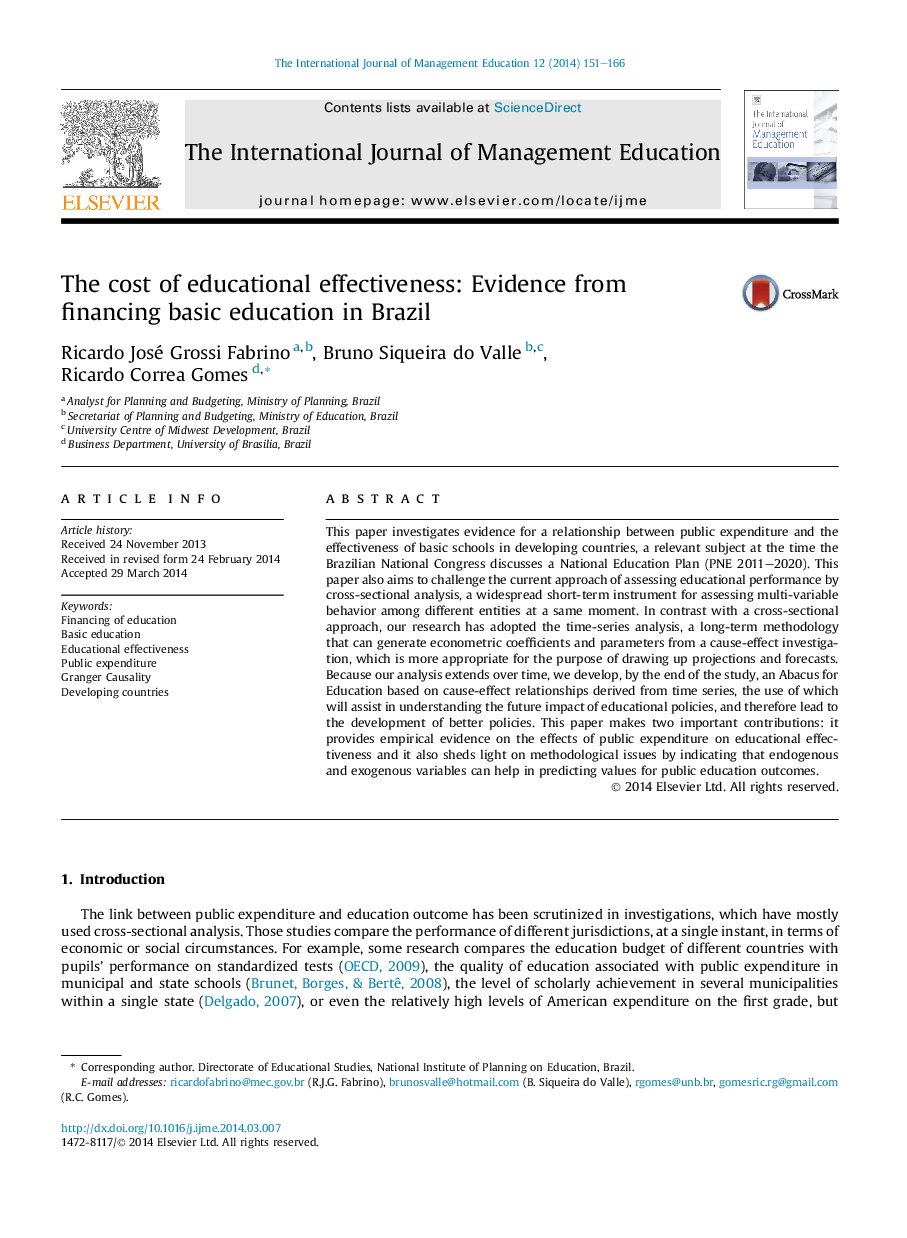| Article ID | Journal | Published Year | Pages | File Type |
|---|---|---|---|---|
| 357430 | The International Journal of Management Education | 2014 | 16 Pages |
Abstract
This paper investigates evidence for a relationship between public expenditure and the effectiveness of basic schools in developing countries, a relevant subject at the time the Brazilian National Congress discusses a National Education Plan (PNE 2011-2020). This paper also aims to challenge the current approach of assessing educational performance by cross-sectional analysis, a widespread short-term instrument for assessing multi-variable behavior among different entities at a same moment. In contrast with a cross-sectional approach, our research has adopted the time-series analysis, a long-term methodology that can generate econometric coefficients and parameters from a cause-effect investigation, which is more appropriate for the purpose of drawing up projections and forecasts. Because our analysis extends over time, we develop, by the end of the study, an Abacus for Education based on cause-effect relationships derived from time series, the use of which will assist in understanding the future impact of educational policies, and therefore lead to the development of better policies. This paper makes two important contributions: it provides empirical evidence on the effects of public expenditure on educational effectiveness and it also sheds light on methodological issues by indicating that endogenous and exogenous variables can help in predicting values for public education outcomes.
Keywords
Related Topics
Social Sciences and Humanities
Business, Management and Accounting
Business, Management and Accounting (General)
Authors
Ricardo José Grossi Fabrino, Bruno Siqueira do Valle, Ricardo Correa Gomes,
